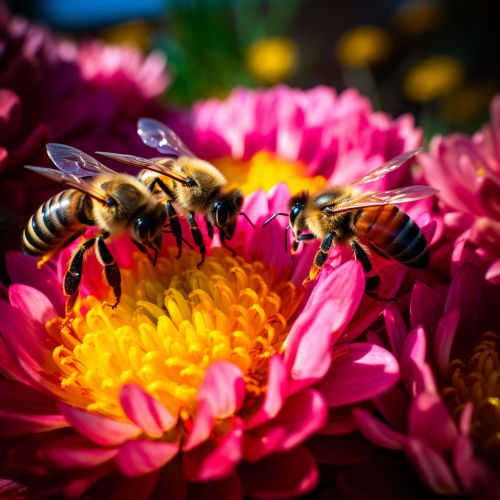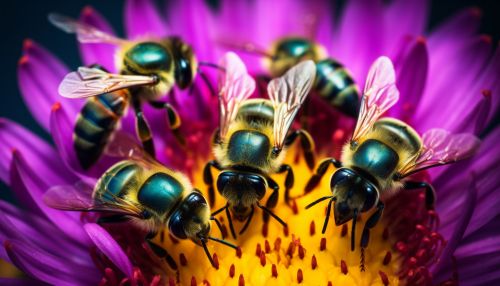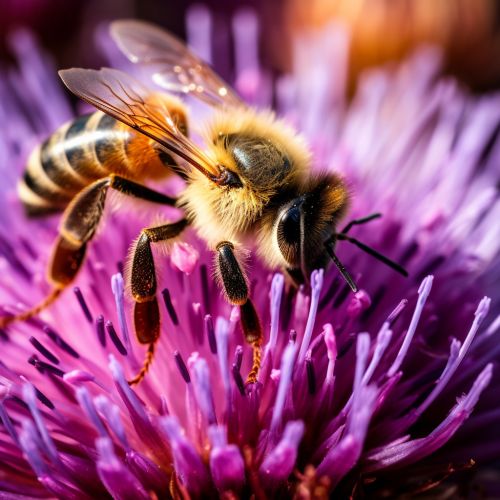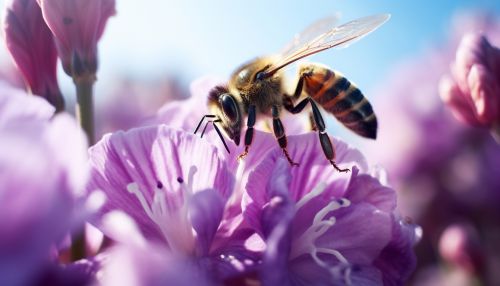The Ecology of Bee Diversity and Pollination Services
Introduction
The ecology of bee diversity and pollination services is a complex and fascinating field of study. It involves understanding the various species of bees, their ecological roles, and the services they provide through pollination. This article delves into the intricacies of this subject, exploring the ecological significance of bee diversity and the vital role of pollination services in maintaining biodiversity and ecosystem health.


Bee Diversity
There are over 20,000 known species of bees, each with unique characteristics and ecological roles. This diversity is a result of evolutionary processes and environmental adaptations over millions of years. Bees are found in almost every habitat on Earth, from tropical rainforests to arid deserts, and from coastal areas to high-altitude mountains.
Factors Influencing Bee Diversity
Bee diversity is influenced by a variety of factors, including habitat diversity, floral availability, and climatic conditions. For instance, regions with a high diversity of flowering plants tend to have a greater diversity of bees, as different bee species are often specialized for different types of flowers. Similarly, regions with a variety of habitats, such as forests, meadows, and wetlands, are likely to support a greater diversity of bee species.
Pollination Services
Pollination is a vital ecological service provided by bees. It involves the transfer of pollen from the male parts of a flower to the female parts, enabling fertilization and the production of seeds. Bees are among the most effective pollinators due to their size, hairiness, and feeding habits, which involve visiting numerous flowers to collect nectar and pollen.
Importance of Pollination Services
Pollination services are crucial for the reproduction of a vast majority of flowering plants, including many of the fruits, vegetables, and nuts that make up a significant portion of human diets. Without the pollination services provided by bees, many of these plants would fail to reproduce, leading to a decline in food diversity and availability. Moreover, pollination services also play a crucial role in maintaining biodiversity by facilitating the reproduction of a wide range of plant species.
The Role of Bee Diversity in Pollination Services
The diversity of bees plays a crucial role in the provision of pollination services. Different bee species have different foraging behaviors, preferences for certain types of flowers, and times of activity. This means that a diverse community of bees can provide more effective and comprehensive pollination services than a community dominated by a single species.


Threats to Bee Diversity and Pollination Services
Unfortunately, bee diversity and pollination services are under threat from a variety of factors. These include habitat loss, pesticide exposure, climate change, and the spread of diseases and parasites. These threats can lead to declines in bee populations and diversity, which in turn can have serious impacts on the provision of pollination services.
Conservation of Bee Diversity and Pollination Services
Given the importance of bee diversity and pollination services, efforts are being made to conserve and enhance these vital ecological assets. These efforts include the creation of bee-friendly habitats, the reduction of pesticide use, and the promotion of practices that support bee health and diversity.
